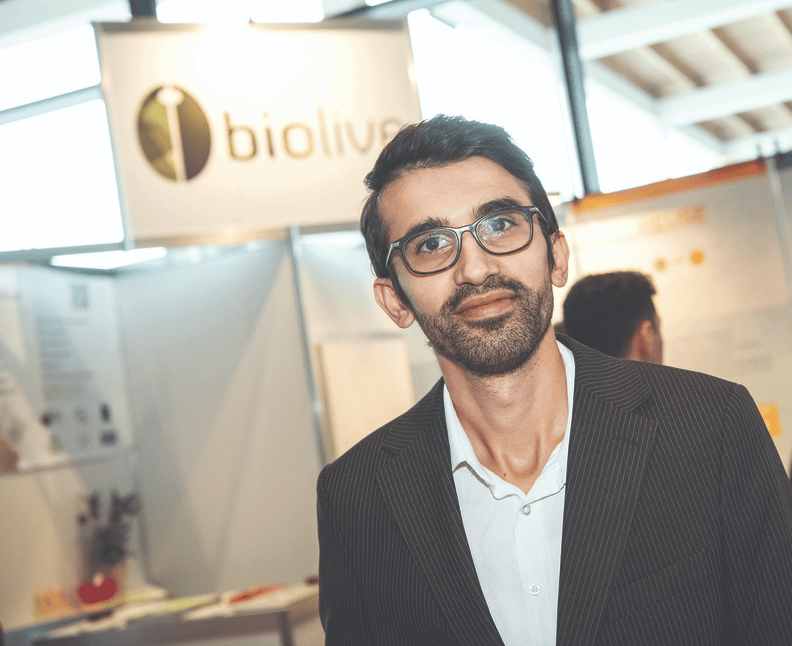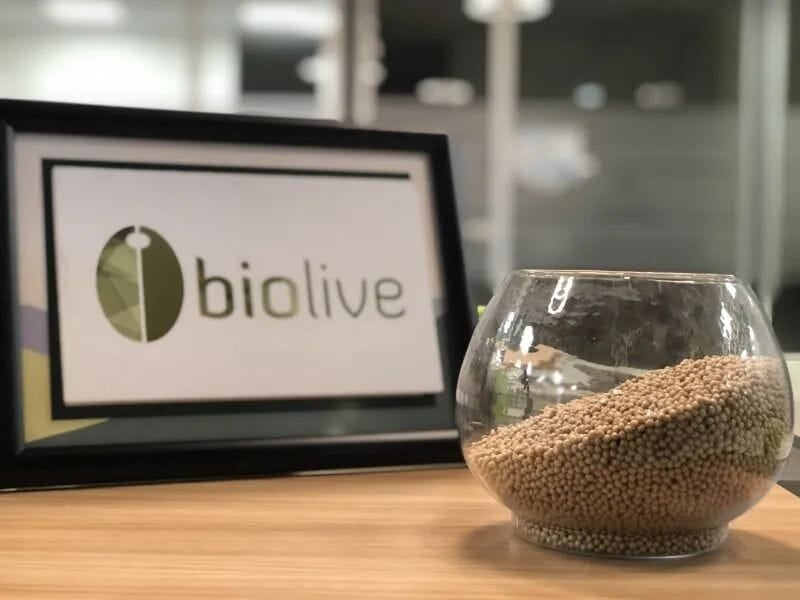Three students in Turkey have created a company that produces plastics from recycled olive kernels and are exhibiting their products at the FAKUMA plastics fair (Oct. 15-19) in Germany. The company is called Biolive Biyolojik ve kimyasal teknolojiler san tic a.s. and is based in Istanbul, Turkey.

Ahmet Ayas
Ahmet Ayas, who is the company's co-founder and sales manager, hatched the idea of recycling olive kernels to make bioplastics that can be used in a variety of products during an entrepreneurship class at Istanbul Technical University in 2017, which eventually evolved to a lab scale and then a pilot program that became a commercial operation about 18 months ago.
The company's current capacity is around 800 tons of olive pits per month. ayas says that current production is around 250 tons, so there is room for the company to grow the plant. biolive is not worried about the source of the raw material, as turkey is one of the largest olive producers in the world, with 500,000 tons of pits being produced every year in turkey alone. Globally, this figure jumps to 6 million tons, and Biolive has already established relationships with olive processors, where the pits were originally burned or landfilled.
Ayas said that olive pits are placed inside a reactor at pressure and temperature to be converted into a material that can then be used to make bioplastics, which can then be used on their own or in combination with other traditional plastics, such as polypropylene, for greater sustainability.
Ayas was reluctant to discuss the details of the company's process, fearing that such information could spark competition. He said, “It's mostly cellulose-based materials, not cellulose, because these materials are very well suited to other plastics.” According to the company's website, one of the products, called “Bio Pura,” is a 100 percent bio-based and biodegradable biopolymer derived from olive pits.
Today, Biolive's products are predominantly produced by injection molding methods, usually with polypropylene, but they are also being used with other resins such as ABS and polyethylene.Biolive is also currently working to introduce its products into other applications, including polycarbonate and combinations of polycarbonate and ABS.

In addition to creating a sustainability story by reusing olive kernels in place of petroleum-based plastics, Biolive notes that energy savings can be realized by introducing its materials. This is due to the fact that processing temperatures are likely to be around 25-30 degrees lower than typical. This reduces the carbon footprint of production.
Ayas says, “We offer the same production, the same machinery, the same molds and almost the same parameters, only with lower production temperatures. The rest is the same.” He counts both Emin Oz and Duygu Yilmaz as co-founders. The company has attracted 20 investors since its inception.
Ayas says there is a slight price premium for using Biolive compared to using only traditional resins.

